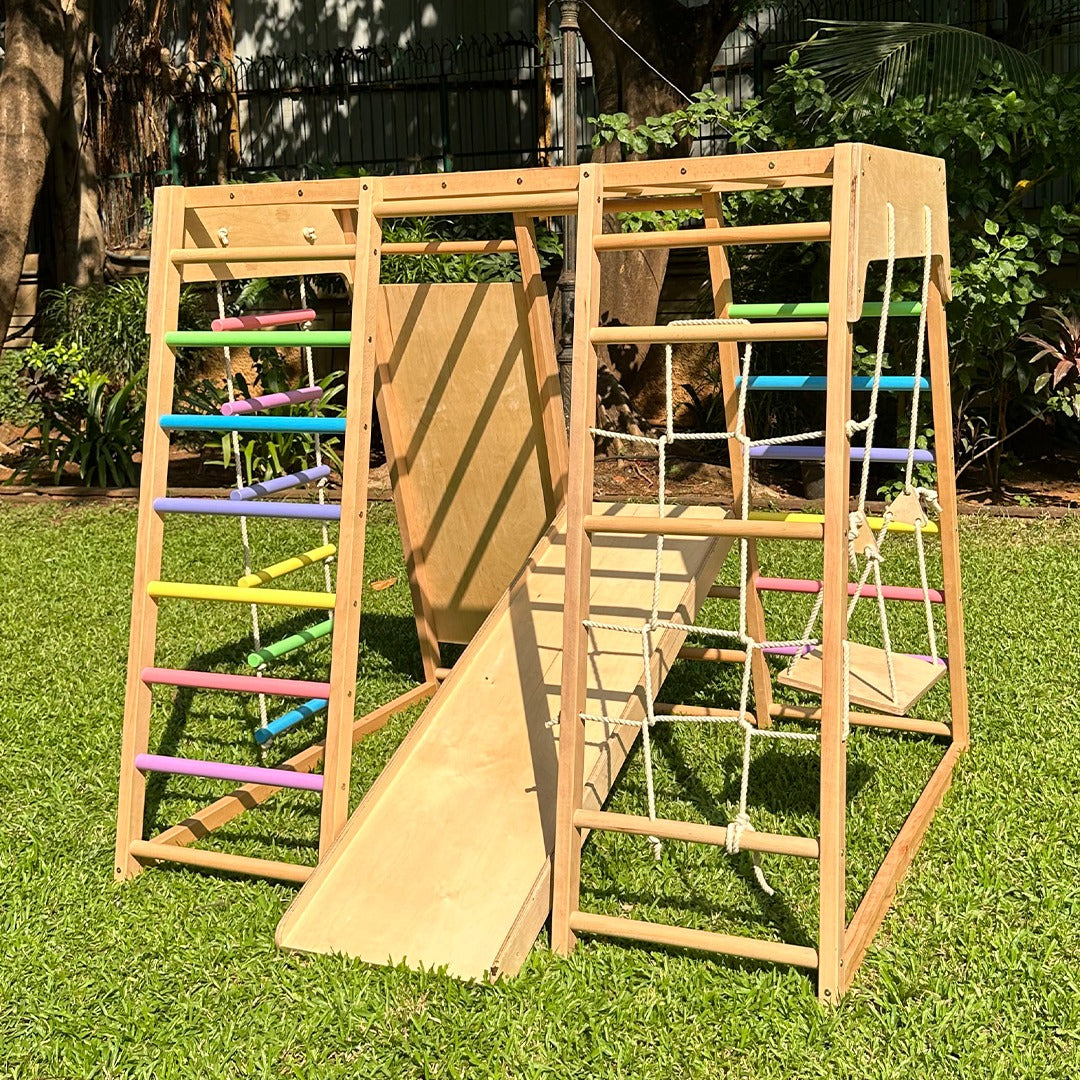Every Indian parent dreams big for their child. From the moment they start school, there's an unspoken, sometimes overwhelming, pressure to excel, to stand out, to secure that coveted admission. We see it in the hushed conversations at family gatherings comparing board exam scores, the flurry of coaching class ads, and the almost palpable tension that grips households during exam season. While our intentions are pure – we want the best for our children – this relentless focus on marks, ranks, and future careers often overshadows something far more precious: the inherent joy of learning itself.
Think back to when your child first discovered something new. Remember the sparkle in their eyes when they figured out how a simple pulley works, or the excited chatter after learning about a new animal at the zoo? That unadulterated curiosity, that drive to explore and understand the world, is a powerful engine for true learning. But somewhere along the line, for many of our children, this joy gets buried under a mountain of syllabi, rote memorization, and the anxiety of 'what if I don't score well?'
The Unseen Toll of India's Exam Culture
In our society, academic achievement isn't just a personal milestone; it's often seen as a reflection of family pride, a gateway to a respectable future, and a ticket to social mobility. From the early years, the emphasis shifts quickly from 'what did you learn today?' to 'what marks did you get?' This high-stakes environment can create immense stress, not just for children but for parents too. Kids might start viewing school as a battlefield rather than a playground for their minds. The fear of failure can stifle creativity, discourage risk-taking in learning, and even lead to mental health challenges like anxiety and depression, which we are seeing increasingly among our youth.
The constant comparison with 'Sharma ji ka beta' or 'Gupta ji ki beti' further exacerbates this. Children internalize these comparisons, leading to self-doubt and a feeling of inadequacy if they don't meet perceived benchmarks. They might become reluctant to ask questions in class, fearing judgment, or develop a dislike for subjects they initially found fascinating, simply because they struggle to score high in them. This isn't just about a few challenging months; it's about shaping their entire relationship with knowledge and personal growth.
Beyond the Report Card: Redefining What 'Success' Means
What if we collectively decided that success isn't solely defined by a percentage on a mark sheet, but by the development of a well-rounded, resilient, and curious individual? Imagine a child who loves to read, not just for exams, but for the sheer adventure of stories; who enjoys solving puzzles because of the challenge, not just for an A+; who asks 'why' and 'how' because they genuinely want to understand, even if the answer isn't in their textbook. This is the kind of success that truly equips them for life, far beyond the classroom walls.
Cultivating this deeper joy means shifting our own parental mindset first. It means valuing effort over outcome, process over product, and intrinsic motivation over external rewards. When we celebrate their persistence in tackling a tough problem, their innovative approach to a project, or their willingness to learn from a mistake, we are sending a powerful message: 'Your growth matters more than your grades.'
Practical Steps to Nurture Joyful Learning at Home
Make Learning an Adventure, Not a Chore
Integrate learning into daily life in fun, informal ways. Cooking together can teach fractions and chemistry. A visit to the local market can become a lesson in economics and social studies. Reading storybooks (in any language!) sparks imagination and vocabulary. Let them explore documentaries, nature walks, or even YouTube channels on topics they find interesting. The goal is to show them that learning isn't confined to textbooks but is all around us, an endless adventure waiting to be explored.
Praise Effort and Process, Not Just the Score
When your child brings home a test, instead of immediately asking 'What did you get?', try 'What was challenging about this test?' or 'What did you learn that you didn't know before?' Celebrate the hard work they put in, the improvements they made, or the new strategy they tried, even if the result wasn't perfect. This teaches them that growth comes from perseverance and resilience, not just innate talent.
Encourage Interests Beyond Academics
Is your child fascinated by coding? Do they love painting mandalas? Are they passionate about cricket? Create space and time for these pursuits. Hobbies provide an outlet for stress, develop diverse skills, and often foster a sense of accomplishment and self-worth that isn't tied to academic performance. These activities often hone problem-solving skills, creativity, and teamwork – all invaluable life lessons that schools sometimes struggle to teach.
Foster a Growth Mindset
Help your child understand that their intelligence and abilities are not fixed. Mistakes are opportunities to learn, and challenges are chances to grow stronger. Phrases like 'I can't do it' can be reframed into 'I can't do it yet, but I can try different ways.' This mindset is crucial for building resilience and a lifelong love for tackling new things.
Prioritize Rest and Play
In our rush to pack children's schedules with tuitions and extra classes, we often forget the importance of downtime. Unstructured play, sufficient sleep, and moments of quiet reflection are vital for cognitive development, emotional regulation, and simply allowing their brains to consolidate new information. A well-rested, happy child learns more effectively than an exhausted, stressed one.
Be a Role Model for Balanced Living
Children learn by observing. If they see us constantly stressed about work, talking only about achievements, and neglecting our own hobbies or rest, they will internalize that pattern. Show them that you value balance, continuous learning, and finding joy in everyday life beyond your professional roles. Read a book, pursue a hobby, or simply spend quality, screen-free time together.
Shifting focus from a relentless pursuit of marks to fostering a genuine love for learning is a long-term investment in our children's well-being and future. It's about empowering them to be lifelong learners, adaptable thinkers, and truly happy individuals who find intrinsic satisfaction in discovery, rather than just external validation. Let's create homes where curiosity is celebrated, questions are encouraged, and the journey of learning is cherished above all else.
Nurturing a child's intrinsic curiosity and making learning a joyful experience often begins with hands-on discovery. At SkilloToys, we understand this deeply, offering a thoughtfully curated collection of safe, educational, and engaging play-based learning toys designed to spark imagination and critical thinking, encouraging your child to explore the world with enthusiasm and confidence. Discover how SkilloToys.com can be your partner in fostering a lifelong love for discovery, one playful moment at a time.



